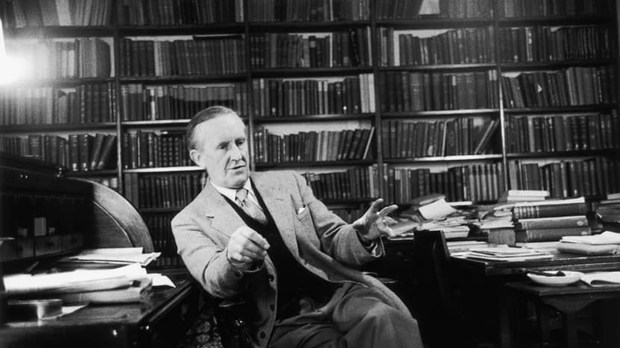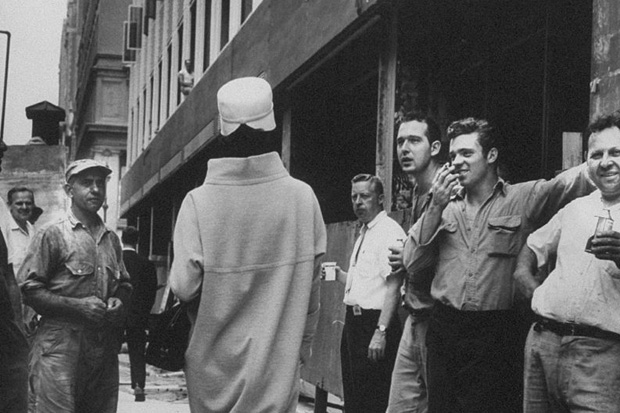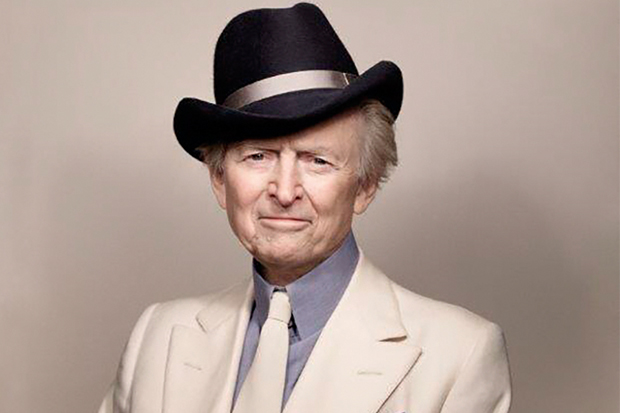At first glance Sean O’Brien’s new novel appears to focus on England’s devotion to the past. Even its title carries the sense and long-sustained rhythm of things going on as before. As if to underscore the point, Once Again Assembled Here is set in the autumn of 1968, a year often portrayed in fiction to describe a revolt into the new, but which in O’Brien’s novel merely serves as a reminder that whatever ideas were being cooked up elsewhere, here tradition and continuity would prevail.
Here, in this case, is Blake’s, a jingoistic public school on the outskirts of a city still marked by the Luftwaffe’s bombing raids. In the peculiar way in which enthusiasm for England often turns on the degree to which one is excluded from its centre, this gloomy provincial establishment — stuffed with military historians, minor poets nursing grievances and an army of boys acting out war games — sees itself as a bastion of the country.
Stephen Maxwell, a retired history teacher still living in the school’s grounds — a man of marked literary pretensions — has been commissioned to write the second volume of the school’s history. In an Epilogue from 2010, he warns us that the secret ‘manuscript’ we are about to read is not that dreary tome, but his shadow journal — a darkly entertaining thriller of secret goings-on, treason and murder. Maxwell confesses from the outset that he is guilty of having a hand in the murder and of maintaining the cover up all these years. However, his many references to Boys’ Own adventure stories, tales of espionage and war, and in particular to Graham Greene, give us a clue not only to this manqué novelist’s imaginative aesthetic, but to the moral wriggle-room the English like to afford themselves: Maxwell’s style gives him the leeway to portray himself as a kind of hero, even as he admits to being a culprit.
This moral and intellectual murkiness is reflected in the novel’s landscape. The autumnal Blake’s is often wreathed in fog or mist, and Maxwell’s sojourns into the war-scarred city are by night, when his literary cast of mind picks out the frost glinting off rubbled buildings or, from high windows, stars glimmering above the dark streets below. The high windows — one of several Larkinesque touches — belong to various lovers. Maxwell is far from rebellious, but his penchant for married women repeatedly gets him into trouble, leaving him with a reputation for minor disgraces, for not getting on board. Then, rising out of the tedium and gloom, the worship of war dead and unthinking obedience to authority, something with its own sharp glint of fascination catches the imagination of Blake’s pupils.
Encouraged by the aristocratic Rackham — once a German collaborator, now a quasi-Poundian poet and charismatic English teacher — they stage a mock election, mirroring the by-election taking place in the city. Maxwell’s failure to act means that, as in the city, a fascist candidate is fielded, and with incredible rapidity the atmosphere shifts from boredom to menace: a fight breaks out; a fire is set; a Jewish boy’s life is threatened.
As it transpires, for a novel about the past, O’Brien’s book is extraordinarily prescient. It’s impossible to read of Rackham’s sense of immunity without thinking of Tony Blair and the Iraq War. Nor fail to hear David Cameron’s recent tirade against Jeremy Corbyn, when Blake’s headmaster exhorts Maxwell: ‘Resign, man. Do it today.’ In 2010, O’Brien discussed the political history of this phrase — from Oliver Cromwell to Leo Amery — in Journey to the Interior, a monograph on the idea of Englishness in contemporary poetry. In this prose work, as in Once Again…, it’s the coercive clubbableness of the English that O’Brien dissects — an establishment so keen to re-enact tradition and so punitive to anyone less than ecstatic about its continuation.
Because of this, at Blake’s even someone as ambivalent as Maxwell poses a threat. But just as the pupils are excited by Rackham’s demagoguery, his poetry of blood and soil, so Maxwell is emotionally tethered to Blake’s, finding it hard to extricate himself from the school or from his affair with Rackham’s striking (in both senses of the word) sister. As the initials of his name suggest, sado-masochism runs deep in the English psyche.
The post Tales out of school appeared first on The Spectator.
Got something to add? Join the discussion and comment below.
Get 10 issues for just $10
Subscribe to The Spectator Australia today for the next 10 magazine issues, plus full online access, for just $10.
You might disagree with half of it, but you’ll enjoy reading all of it. Try your first month for free, then just $2 a week for the remainder of your first year.














Comments
Don't miss out
Join the conversation with other Spectator Australia readers. Subscribe to leave a comment.
SUBSCRIBEAlready a subscriber? Log in